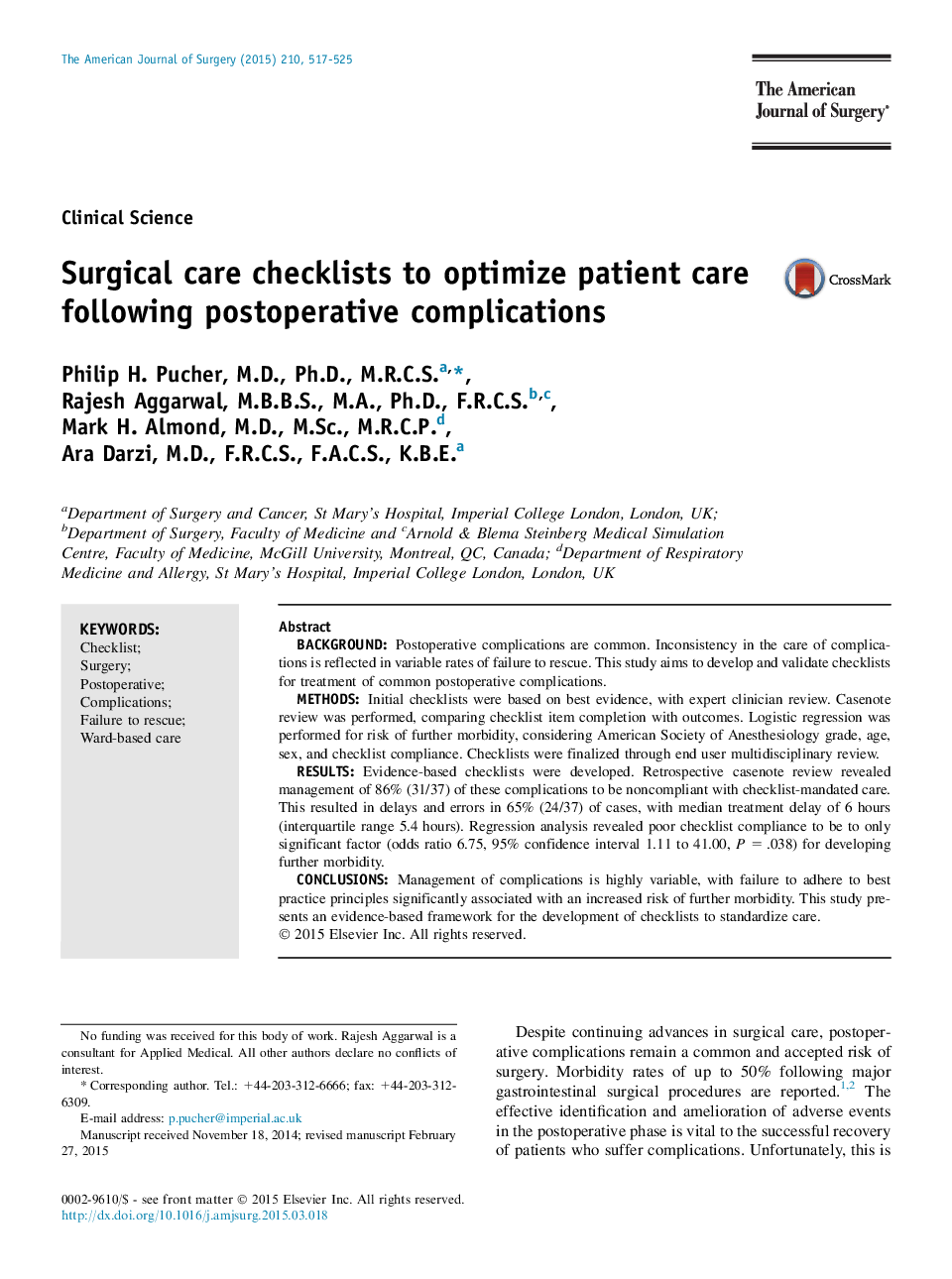| Article ID | Journal | Published Year | Pages | File Type |
|---|---|---|---|---|
| 4278539 | The American Journal of Surgery | 2015 | 9 Pages |
•An iterative process for design of evidence-based checklists is described.•Retrospective casenote review demonstrated only 13% compliance with checklists in current practice.•Poor checklist compliance was significantly associated with development of multiple postoperative complications.•Checklists received positive feedback and good buy-in through incorporation of intended users in the development process.
BackgroundPostoperative complications are common. Inconsistency in the care of complications is reflected in variable rates of failure to rescue. This study aims to develop and validate checklists for treatment of common postoperative complications.MethodsInitial checklists were based on best evidence, with expert clinician review. Casenote review was performed, comparing checklist item completion with outcomes. Logistic regression was performed for risk of further morbidity, considering American Society of Anesthesiology grade, age, sex, and checklist compliance. Checklists were finalized through end user multidisciplinary review.ResultsEvidence-based checklists were developed. Retrospective casenote review revealed management of 86% (31/37) of these complications to be noncompliant with checklist-mandated care. This resulted in delays and errors in 65% (24/37) of cases, with median treatment delay of 6 hours (interquartile range 5.4 hours). Regression analysis revealed poor checklist compliance to be to only significant factor (odds ratio 6.75, 95% confidence interval 1.11 to 41.00, P = .038) for developing further morbidity.ConclusionsManagement of complications is highly variable, with failure to adhere to best practice principles significantly associated with an increased risk of further morbidity. This study presents an evidence-based framework for the development of checklists to standardize care.
